Suicide bombs in Nigeria's Kaduna kill 82
Updated: 2014-07-24 08:40
(Agencies)
|
||||||||
KADUNA, Nigeria - At least 82 people were killed on Wednesday in two suicide bombings in the north Nigerian city of Kaduna, one aimed at opposition leader and ex-president Muhammadu Buhari and another at a moderate Muslim cleric about to lead a crowd in prayer.
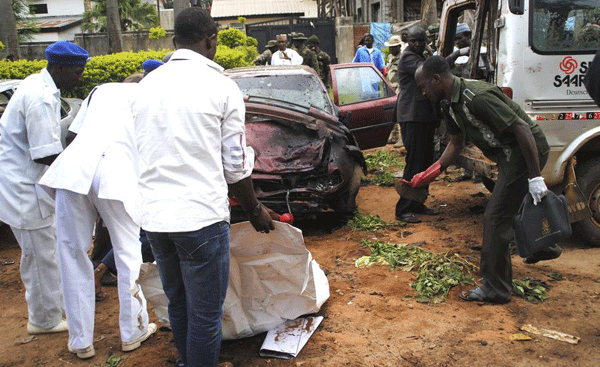 |
| Workers pick items at the scene of a bombing in Kaduna July 23, 2014. [Photo/Agencies] |
The attacks bore the hallmarks of Islamist militant group Boko Haram, which considers all those who do not share its views to be enemies. But it may also have been linked to politics before the 2015 elections.
In the deadliest attack, a bomber in a car full of explosives hurtled towards Buhari's convoy at the crowded Kawo market, his son told Reuters on the scene and police said later. A Red Cross official said at least 50 people were killed there.
Buhari was the main opposition party contender against President Goodluck Jonathan in the 2011 election and remains a key figure in the opposition alliance. He was riding in an armour-plated sport utility vehicle and was not wounded.
A crowd gathered at the scene of the explosion until the military dispersed them by firing shots in the air. Smoke rose from another vehicle destroyed in the blast.
"When I came out of my car I saw many dead bodies littered around," Buhari said in a statement, calling the attack "mass murder" and "clearly an assassination attempt".
Earlier, a suicide bomber on foot, targeting a moderate cleric, killed at least 32 of his congregation on a busy commercial road.
Thousands were gathered for prayers with Sheikh Dahiru Bauchi in Murtala Muhammed square. When his convoy pulled up, the bomber lunged at him before being stopped by his private security, witnesses and police commissioner Shehu Umar Ambursa said.
Kaduna's governor, Mukhtar Yero, declared a 24-hour curfew in the city until further notice and condemned the bombs as "the height of cowardice".
"The enemies of peace have visited us with their ungodly venom of wanton destruction," he said in a statement. "Those behind the act have no notion of God, as they have none for the sanctity of human life."
President Jonathan in a statement called it "an odious attempt to inflame passions and exacerbate disquiet, fear, insecurity and sectional divisions in the country."
The bomber did not injure Bauchi, several witnesses told Reuters. Mustafa Sani, a volunteer for Bauchi's mosque evacuating bodies, said 32 were confirmed dead so far.
"Somebody with a bomb vest ... was blocked. He detonated the bomb along with the person that tried to block him," the police commissioner said, adding police had been able to confirm 25 dead, with 14 wounded. Police later said just 14 died in the second blast, but they often give lower casualty tolls than workers on the scene.
The military used pick-up trucks to cordon off the area. Sirens wailed as fire engines raced to the scene.
An angry crowd started throwing stones at police, who responded with teargas. Some followers had come from Senegal, Chad and Niger to see the popular sheikh.
There was no immediate claim of responsibility for either blast, but Boko Haram has been staging attacks, especially with explosives, outside its northeastern heartland for the past three months.
The main Islamic association, Jama'atu Nasril Islam, called the bombings "acts of terror" and said Nigeria was becoming "a theatre of loss of blood for no just cause".
The United States condemned the bombings and expressed concern that the blasts had targeted Bauchi and Buhari.
"We call on Nigerian authorities to fully investigate these attacks," State Department spokeswoman Marie Harf said in a statement. "We urge all Nigerians to avoid reprisals and continue to practice the interfaith cooperation that violent extremists seek to undermine."
Since launching an insurgency in 2009, the militants have often attacked clerics, such as Bauchi, who take issue with their Salafist ideology. If Boko Haram is responsible for Wednesday's attacks, it underscores the risks moderate clerics take speaking out against it.
The insurgents, who are fighting to carve out an Islamic state in Nigeria, have repeatedly targeted civilians, mostly in remote northeastern Borno state. They killed more than 2,000 civilians during the first half of this year, Human Rights Watch estimated a week ago.
The Islamists attacked the northeastern town of Damboa and surrounding villages over the weekend, killing at least 50 people.
The rebellion has been in the international spotlight since Boko Haram fighters kidnapped more than 200 girls from a school in the northeastern village of Chibok on April 14. Jonathan met parents of the abducted girls, and some other girls who had escaped, for the first time on Tuesday.
Boko Haram leader Abubakar Shekau last week claimed responsibility for two explosions on June 25 at a fuel depot in Lagos, Nigeria's commercial hub, that killed at least two people.
A military offensive since May last year that was meant to dismantle their hold on the northeast has caused the militants to react in two ways: brutal attacks on civilians in the region have surged dramatically, and efforts to strike out in areas far from the rebel strongholds have resumed.
A blast in the central city of Jos, 170 km (105 miles) east of Kaduna, killed 118 people in May.
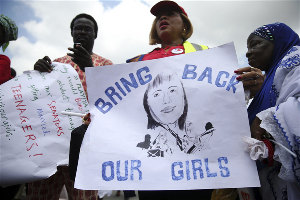 |
|
| Nigeria's Boko Haram threatens to sell kidnapped schoolgirls | Bus station blast near Nigerian capital kills 71 |
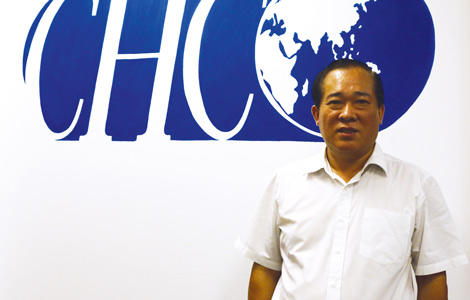
 Chinese business leader feels at home in Cuba
Chinese business leader feels at home in Cuba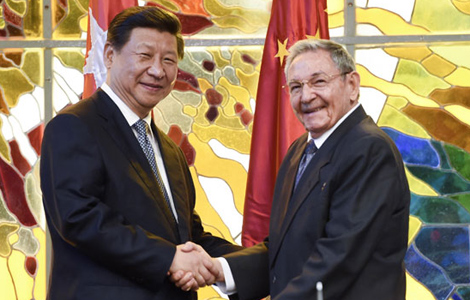
 China, Cuba ink cooperation pacts
China, Cuba ink cooperation pacts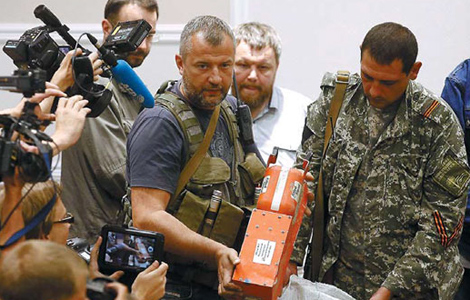
 Rebels hand over black boxes
Rebels hand over black boxes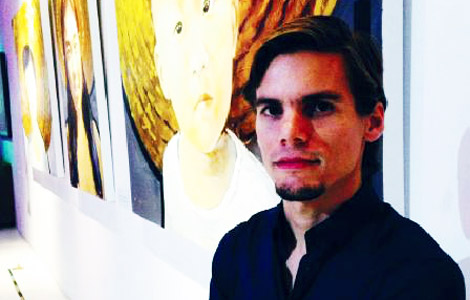
 Cuban artist seeks threads of humanity
Cuban artist seeks threads of humanity
 Jasmine Ballet Group shows talent
Jasmine Ballet Group shows talent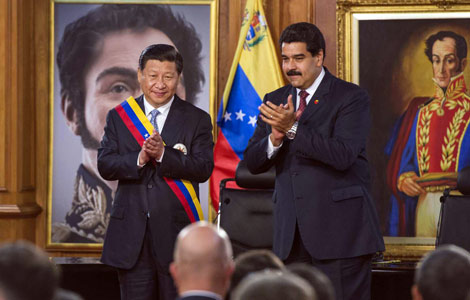
 President Xi honored in Venezuela
President Xi honored in Venezuela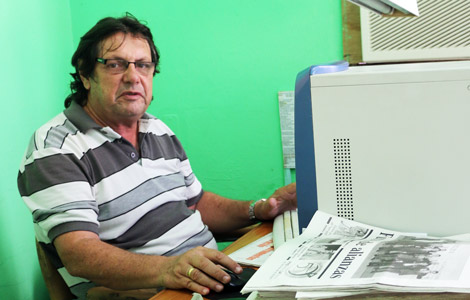
 A bike ride helps Cuban editor fit into Chinese society
A bike ride helps Cuban editor fit into Chinese society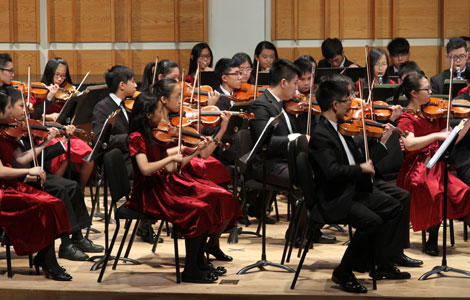
 HK Children's Symphony Orchestra performs in NYC
HK Children's Symphony Orchestra performs in NYC
Most Viewed
Editor's Picks

|

|

|

|

|

|
Today's Top News
36 bodies found from Taiwan plane crash
Xi visits old friend Fidel Castro
Li: The US should adopt 'open stance'
Food scandal pulls in Starbucks, Burger King
Symposium looks at China's healthcare sector
New scare hits fast food chains
Investigators examining MH17 victims
Beijing, Caracas sign multiple agreements
US Weekly

|

|







